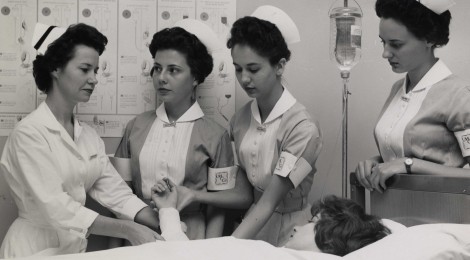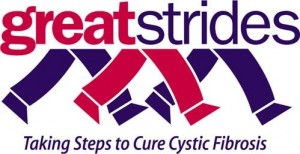
Helping Cystic Fibrosis Patients: A Nurse’s Account
Each year, about a thousand new cases of Cystic Fibrosis are diagnosed worldwide, with more than 70% of patients being diagnosed by age two. The nature of this terminal disease and the devotion many nurses have for their patients can be seen in one Registered Nurse’s emotional and professional account of her eleven year experience treating young adults living with Cystic Fibrosis.
Q: Can you describe the nature of Cystic Fibrosis and whom if affects?
A: Cystic Fibrosis is an inherited, chronic, and progressive disease that affects different parts of the body. The effects of CF are most damaging on the lungs, causing severe respiratory problems. What this means is that affected glands produce an abnormal amount of thick and sticky mucus. It can be so difficult to breathe, it would be like a healthy person having to breathe only through a drinking straw. In the digestive tract, CF makes it difficult to digest as well as absorb enough nutrients from food. It mainly occurs in the Caucasian population, the average age a person living with CF can reach is about 37, and most people are diagnosed with CF at birth.
Q: What are the personal challenges your patients face living with CF?
A: They face numerous challenges. They have difficulty with school and with their jobs due to illness, and they’re unable to socialize with friends as much as they would like due to lack of energy. Similarly, they are not allowed to associate with other CF patients because of the different strains of bacteria that grow in their lungs. So while in hospital they have to basically remain in their rooms, and if they want to talk to another patient they have to keep a six-foot distance. Fortunately with technology like Facebook, they are able to maintain their friendships. Still, a lot of them suffer from depression.
Q: What do you believe is the hardest part about living with Cystic Fibrosis?
A: Facing the possibility of a double lung transplant in the future is frightening. In that case, you’ve gotten rid of two diseased lungs, but you still have CF, and now you also have two transplanted lungs that your body could possibly reject. Basically it’s like trading one disease for another. If the transplant went well, now you must deal with the side effects of the drugs you have to take, and the possibility that you could develop a rejection of your lungs. The hardest part is knowing that no matter what you do, you will have a shorter life span than someone without CF.
Q: When does being a nurse become most challenging or difficult?
A: When a patient becomes very ill and you know that they’re going to die. When we lose a patient we feel like we’ve lost a family member. At the age of eighteen they come to us, often admitted four or more times a year. We get to know the kids very well and we become very fond of them and their families, some more so than others. The kids are usually my own children’s age, so I feel like they are my “at work” kids, and they feel like I’m their mom away from home. We are their support system and we take on those motherly responsibilities – it’s an inevitable bond we develop over time. But I also have great feelings of sadness, helplessness, and often guilt, having healthy children of my own.
Q: Since nurses hold a professional as well as an emotional position with patients, do you find yourself taking on a significant role for families who have lost a loved one to CF?
A: The role that we play is basically a support person. We’re providing a shoulder for the family to cry on; oftentimes, we cry with them. You become an advocate for your patient, so that the person dies as comfortably as possible. We’re there to take care of not only the dying patient but also the family. That’s the bottom line: We want them to be able to die peacefully and with dignity with their loved ones close by.
Q: Are there resources available for families who have lost a loved one to CF?
A: When someone dies, we nurses are there in-the-moment helping the families. The families have the option of seeing a chaplain for guidance or extra support. Since the time of their child’s diagnosis, most families are already involved with the Cystic Fibrosis Foundation, providing them with programs like newsletters, up-to-date research, and fundraisers, as well as providing support groups where parents of kids can meet other parents and share stories.
Q: How do you cope and carry on doing what you do in the midst of continuous loss?
A: One word: acceptance. We have to accept what is happening and know we did the best that we could. We take the time we need to cry with the family. An inner strength seems to carry us through the pain so that we can be there for others. We have to let the other patients know that all was done to make the death as comfortable as possible. Really, we have to keep going for those who are still battling the disease. We go in one room crying, and into another smiling.
Q: What advice do you have for someone who is living with CF, or who knows someone living with CF?
A: My advice is to never give up; follow the rules, take your meds, and do your physio and treatments. Find out about support groups that the CF Foundation has, and befriend others with CF as they are absolutely the best support system. Most importantly, I would tell them to live their lives to the fullest and make the best of every day they have.
– Stephanie Rhys, Contributing Writer
If you want to be part of the cure for Cystic Fibrosis, please join the 2011 Great Strides™ walk Sunday, May 29th, at the Toronto Zoo supporting Cystic Fibrosis research and care. For more ways to help, visit http://www.cysticfibrosistoronto.ca/




